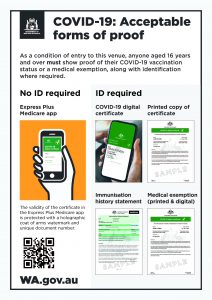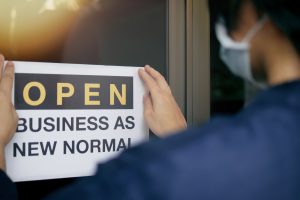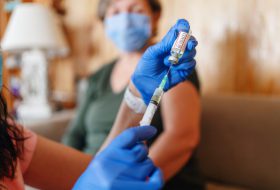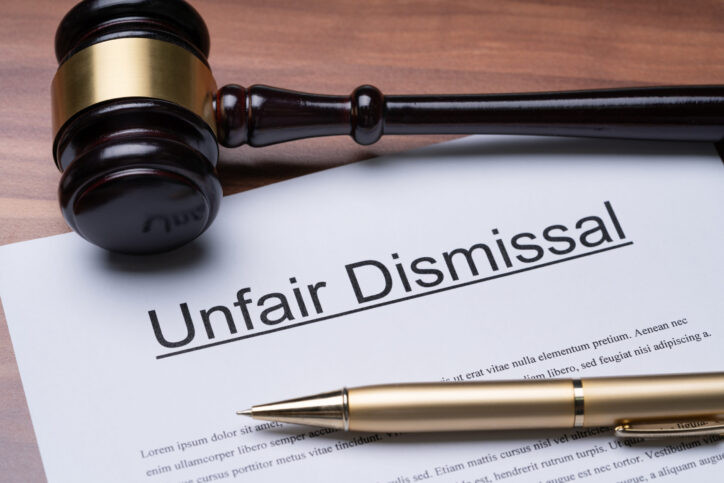Whether you’ve implemented a workplace vaccination policy or fall into a mandatory vaccination category, you're now one of a growing number of businesses required to check for proof of vaccination.
But what’s acceptable proof, and how do you spot a fake document? We step you through it.
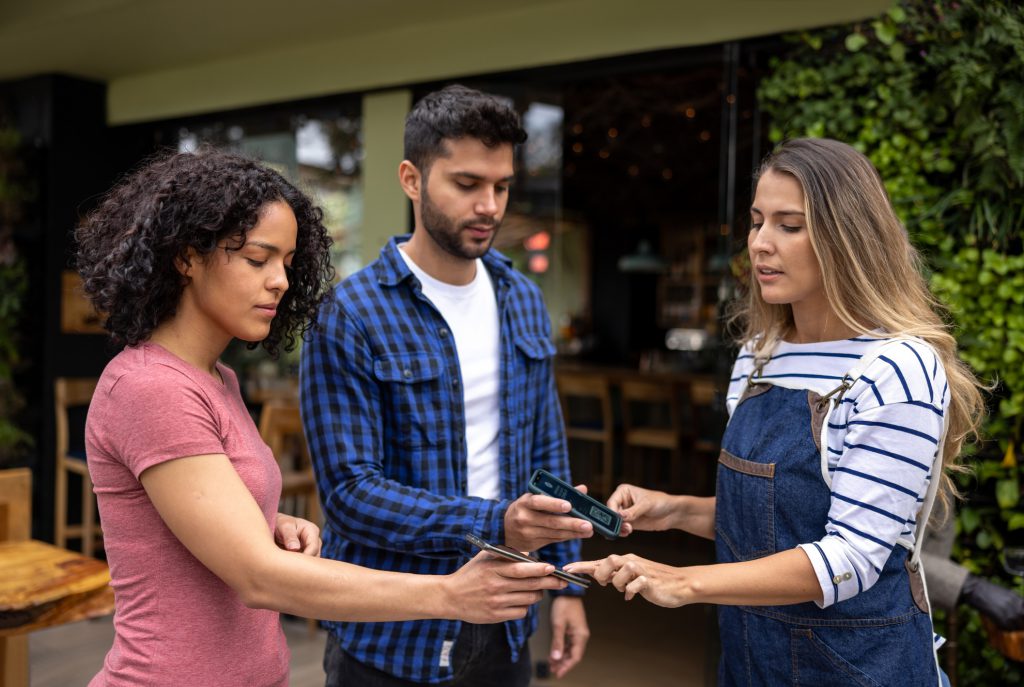
Who needs to show proof of vaccination?
Venues
From January 31, 2022, proof of vaccination for people aged 16 years and over will be required in WA for:
- visitors to public and private hospitals, and residential aged care facilities;
- all hospitality and food and licensed venues including restaurants, dine-in fast food, cafes, bars, pubs, clubs, taverns, bottle shops and excluding food and non-alcoholic beverage takeaway, roadhouses, and service stations;
- indoor entertainment venues, including play centres, gaming and gambling, theatres, concert halls, museums, cinemas and live music venues, including the Perth Convention Centre;
- nightclubs;
- the Crown Perth complex;
- major stadiums;
- gyms, fitness studios and centres;
- amusement parks and the zoo; and
- music festivals and large events with more than 500 people, unless exempt.
For staff employed in venues covered by these new proof of identification requirements, they will need to have had their first COVID-19 vaccine dose by January 31, and their second dose by February 28 in order to enter the premises.
Workforces mandated by Government
Most of WA’s workforce is now required to be vaccinated to attend the workplace.
- People in Group 1 industries and occupations must be doubled-vaccinated by December 31, 2021, and receive a booster within one month of being eligible.
- People in Group 2 industries and occupations must be fully vaccinated by January 31, 2022, and receive a booster within one month of being eligible.
- Employees in Group 3 are required to be fully vaccinated to attend work in the event of a lockdown or similar restrictions.
For more on the rules for these three groups see: COVID-19 Support
Other businesses
Businesses not in the above categories can also make proof of vaccination a condition of entry to their workplaces.
Any worker required to be vaccinated must provide proof of their vaccination status when required to do so by their employer or the owner/occupier/person in charge of the relevant facility.
See: Implementing a vaccination policy
Employee vaccine records — where you stand
How can I check proof of vaccination?
Proof of vaccination from customers, clients or staff can be provided to you via:
- an immunisation history statement; or
- COVID-19 digital certificate.
These documents can be downloaded via the Express Plus Medicare app, or via a Medicare online account, myGov account or My Health Record. A vaccination provider, such as a GP or pharmacist, can also print an immunisation history statement.
You can also call the Australian Immunisation Register on 1800 653 809 and ask for your statement or certificate to be posted to you.
The State Government as also launched the ServiceWA app, which connects the SafeWA check-in, as well as a person’s imported COVID-19 digital certificate and any G2G passes.
How can I spot a fake vaccination certificate?
Strong views on mandatory vaccination may result in some people attempting to provide fraudulent documentation to enter a business premises.
In a recent Fair Work Commission hearing, a Melbourne man attempted to challenge his dismissal after concerns were raised by his employer O&M Pty Ltd that his vaccination certificate was fraudulently obtained.
While the case was abruptly discontinued by the applicant, FWC Deputy President Richard Clancy said in a statement that:
“If the vaccination certificate is a fraud and has been fraudulently obtained via an illegitimate hyperlink on the internet, this would be a matter of extremely serious public policy concern."
Reasonable and lawful steps
CCIWA Workplace Relations Director Ryan Martin says that employers are required to take all reasonable and lawful steps to collect and maintain a record of the vaccination status of relevant workers.
“Employers should familiarise themselves with what the different forms of evidence look like - whether that be a digital certificate, a printed immunisation record or an international COVID certificate,” he says.
Look for anything immediately dubious, such as:
- missing information
- spelling mistakes,
- missing or incorrect placing of government logos or watermarks
- missing animations for digital certificates
- unusual or missing dates
Query this with the employee. There may be a reasonable explanation, for example it may have been a printing issue if it is a hard copy.
If you still think the proof you are being shown is fraudulent, you can report suspect fraud online through the Services Australia website or call the fraud tip-off line.
“It is important that employers have confidence in the proof they are being provided to ensure they are also complying with their obligations under Work Health and Safety legislation to provide a working environment in which employees are safe and not exposed to hazards,” Martin says.
For general advice on your individual situation call CCIWA’s Employee Relations Advice Centre on (08) 9365 7660 or via [email protected].
For legal advice specific to your situation, contact our team of Workplace Relations lawyers on (08) 9365 7746 or via [email protected].
You may also be interested in
Who needs a booster shot?
Implementing a COVID-19 vaccination policy
Employee vaccine records — where you stand







